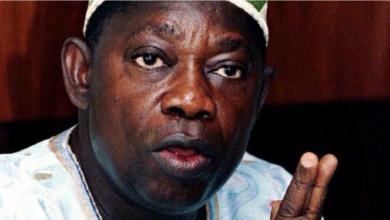Negative portrayal of women stifles democracy, says UN Women


By G9ija
The United Nations (UN) Women has said that the negative portrayal of women in politics and leadership stifles democracy and justice.
According to the UN Women, the roles assigned to women and their contributions to society are not valued.
Veronica Ogbole of the UN Women stated this, yesterday, at a training with the theme ‘Positive Portrayals of Women in Politics and Leadership’ for political reporters, in Maiduguri, Borno State.
Women’s political involvement since 2015 is very low, despite decades of struggle for gender equity and women empowerment, she lamented, noting that women recorded all-time low participation of 14 in the House of Representatives and eight in the Senate.
“The National Gender Policy and the Independent National Electoral Commission’s Gender Policy Draft did not translate to an increase in the number of women elected or appointed into leadership positions, despite that women make up the majority of the population,” she said.
According to her, political parties in the country are one of the key mechanisms for women to advance their political aspirations for leadership at all levels. “But they are not helping women achieve their leadership roles, as women are denied effective participation within the existing political parties.”
On the decline of women in leadership, she said: “In 1999, only 12 females against 978 males were elected into the Houses of Assembly, three females out of 109 senators, 13 females in the House of Representatives as against 347 males. Women constituted only 11.9 per cent of ambassadorial appointments.
“There was a slight increase by 2003 from 39 females in the Houses of Assembly as against 951 males, while female members in the House of Representatives rose to 21 against 339 males. Only 86 females of the 833 persons were appointed into boards and parastatals.”
Ogbole noted that the 2007 general elections led to a significant improvement, but its flaws led to continued threats to women holding political positions.
“The only female, Sen. Aisha Jummai Al-Hassan of Taraba State, that contested the governorship election in Nigeria, had the election ended in controversy,” she noted.
She said even the senate was not spared, as only eight female senators (7.34 per cent) represented their people in the red chamber.
“On grassroots representations, 31 females out of 325 emerged in the 774 local councils as chairpersons, and 368 out of 2,075 councillors. There were two female deputy governors out of 36,” she added.





